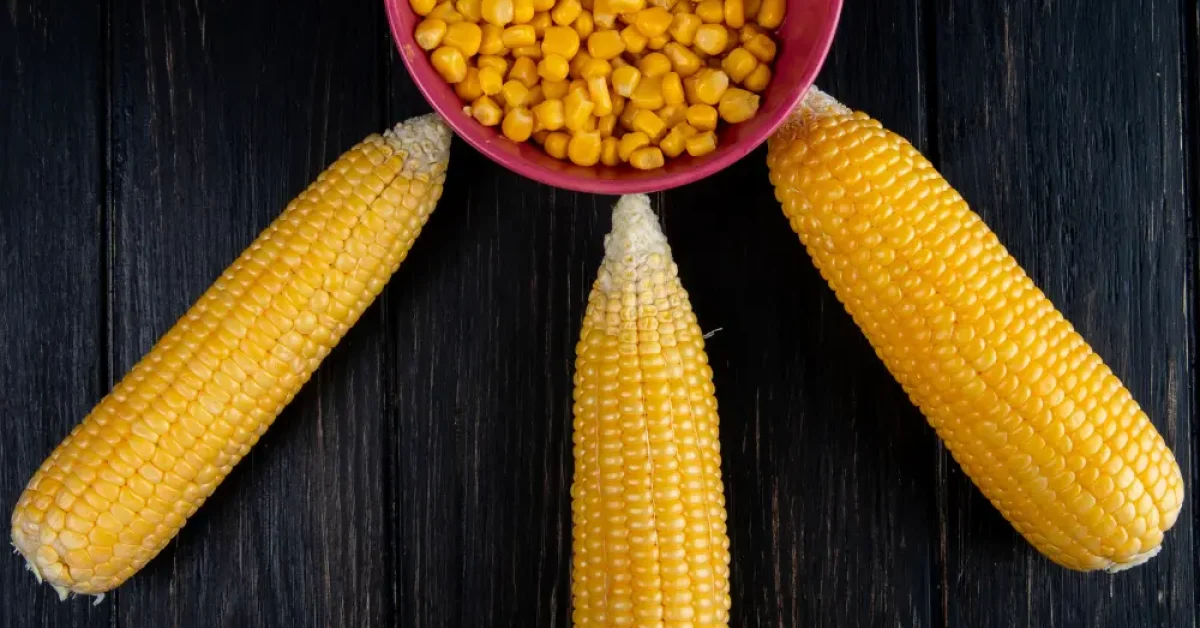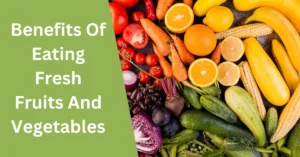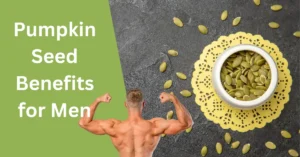Corn, also known as maize, is a cereal grain first domesticated by indigenous peoples in southern Mexico about 10,000 years ago. It has since become a staple food crop in many parts of the world. Corn is characterized by its large kernels set in rows on a cob, and it comes in various types including sweet corn, dent corn, flint corn, and popcorn. As a crop, corn is incredibly versatile and can be grown in a wide range of climates, making it a crucial agricultural product globally.
Popularity and Versatility of Corn as a Food Item
Corn is one of the most popular and widely consumed grains worldwide. Its versatility is unmatched, allowing it to be used in numerous forms and culinary applications. Fresh corn on the cob is a summertime favorite, while canned and frozen corn provides a convenient option for meals year-round. Cornmeal and corn flour are staples in baking and cooking, used to make everything from cornbread to tortillas. Additionally, corn is a key ingredient in many processed foods and beverages, including breakfast cereals, snack foods, and even soft drinks (in the form of high-fructose corn syrup). The grain’s adaptability extends to various cuisines, being a fundamental component in dishes across American, Mexican, African, and Asian culinary traditions. Whether boiled, roasted, grilled, or ground, corn’s delightful flavor and nutritional benefits make it a beloved food item around the globe.
Nutritional Value of Boiled Corn
Boiled corn is not only delicious but also packed with essential nutrients that contribute to a healthy diet. Here’s a detailed look at its nutritional profile:
| Nutrient | Amount per Ear (90g) |
|---|---|
| Carbohydrates | 19 grams |
| Protein | 3 grams |
| Fat | 1.5 grams |
| Vitamin B1 (Thiamin) | 0.16 mg |
| Vitamin B5 (Pantothenic Acid) | 0.75 mg |
| Folate (Vitamin B9) | 60 mcg |
| Vitamin C | 6 mg |
| Magnesium | 31 mg |
| Potassium | 270 mg |
| Iron | 0.5 mg |
| Dietary Fiber | 2 grams |
This table lists the nutrients found in boiled corn and their respective amounts per ear (90 grams) without including category labels.
Health Benefits of Eating Boiled Corn
“Boiled corn, a beloved staple in many cuisines around the world, offers not only delicious taste but also a plethora of health benefits. Let’s delve into 10 reasons why adding boiled corn to your diet can contribute to your overall well-being
- Nutrient-rich: Boiled corn is packed with essential nutrients like vitamins A, B, and E, as well as minerals like magnesium, potassium, and zinc.
- Fiber: It’s a great source of dietary fiber, aiding digestion and promoting bowel regularity.
- Heart health: The fiber and antioxidants in boiled corn can help lower cholesterol levels, reducing the risk of heart disease.
- Weight management: Corn is relatively low in calories and high in fiber, making it a filling yet nutritious addition to a weight loss or maintenance diet.
- Eye health: The antioxidants lutein and zeaxanthin found in corn can promote eye health and reduce the risk of age-related macular degeneration.
- Blood sugar control: The fiber content in corn can help stabilize blood sugar levels, making it a suitable option for individuals with diabetes when consumed in moderation.
- Boosts immunity: Corn contains vitamin C and other antioxidants that support the immune system, helping the body fight off infections and illnesses.
- Energy: Being a good source of complex carbohydrates, corn provides a sustained release of energy, keeping you feeling energized throughout the day.
- Bone health: The minerals like magnesium and phosphorus in corn contribute to maintaining strong bones and preventing osteoporosis.
- Skin health: The vitamins and antioxidants in corn can promote healthy skin by protecting it from damage caused by free radicals and UV rays, reducing signs of aging.
Incorporating boiled corn into your meals not only adds delightful flavor but also offers a plethora of health benefits, making it a smart choice for your overall wellness journey.”
Side Effects of Eating Boiled Corn
While boiled corn offers numerous health benefits, consuming it in excess or under certain circumstances may lead to some side effects. Here are a few to be mindful of:
- Digestive Issues: Boiled corn contains fiber, which is generally beneficial for digestion. However, consuming too much fiber at once, especially if your body isn’t used to it, can lead to bloating, gas, or abdominal discomfort.
- Allergic Reactions: Some individuals may have an allergy to corn or develop an allergic reaction to certain proteins present in corn. Symptoms can include itching, swelling, hives, or even more severe reactions like anaphylaxis in rare cases.
- High Glycemic Index: Despite its fiber content, corn has a relatively high glycemic index (GI), which means it can cause a rapid spike in blood sugar levels, particularly for people with diabetes or insulin resistance. Moderation is key, and pairing corn with protein or healthy fats can help mitigate this effect.
- Weight Gain: While boiled corn is relatively low in calories, consuming large quantities of it, especially when prepared with added fats or sugars, can contribute to weight gain over time.
- Potential Contamination: Corn crops may sometimes be contaminated with molds or toxins called mycotoxins, which can pose health risks if consumed in large amounts. It’s essential to ensure that the corn you consume is fresh and properly stored.
- Interference with Medications: Corn contains compounds called phytates, which can bind to certain minerals and reduce their absorption in the body. If you rely on medications that require optimal mineral absorption, such as certain antibiotics or thyroid medications, consuming corn in excess may interfere with their effectiveness.
- Genetically Modified Organisms (GMOs): Much of the corn produced globally is genetically modified. While GMO corn itself isn’t inherently harmful, some people prefer to avoid it due to concerns about long-term health effects or environmental impact.
- Dental Health: Corn can sometimes get lodged between teeth, leading to dental issues like cavities or gum disease if not properly removed through brushing and flossing.
- Aflatoxin Exposure: Improper storage of corn, particularly in warm and humid conditions, can lead to the growth of molds that produce aflatoxins, which are carcinogenic substances harmful to human health if ingested in significant amounts.
- Potential Oxalate Content: While not necessarily a concern for everyone, corn contains oxalates, which can contribute to kidney stone formation in susceptible individuals when consumed excessively.
It’s important to enjoy boiled corn as part of a balanced diet and be mindful of portion sizes and any individual sensitivities or health conditions you may have. If you experience persistent adverse effects after consuming corn, it’s best to consult with a healthcare professional.
Versatility and Culinary Uses
Boiled corn is incredibly versatile and can be incorporated into various dishes and cuisines, adding both flavor and nutrition. Here are some ways to prepare and consume boiled corn, as well as its integration into different culinary traditions:
- Boiled Corn on the Cob: The classic method involves boiling corn ears in salted water until tender, then serving them whole with butter and seasoning.
- Corn Salads: Boiled corn kernels can be added to salads for a burst of sweetness and crunch. Combine with fresh vegetables, herbs, and a vinaigrette dressing for a refreshing side dish.
- Corn Chowder: Boiled corn kernels are a key ingredient in creamy corn chowder soups, adding texture and sweetness. Combine with potatoes, onions, and other vegetables for a comforting meal.
- Corn Salsa: Create a vibrant salsa using boiled corn kernels, diced tomatoes, onions, peppers, cilantro, and lime juice. Serve with tortilla chips or as a topping for grilled meats or fish.
- Cornbread: Incorporate cornmeal made from boiled corn into cornbread batter for a moist and flavorful bread that pairs well with chili, barbecue, or as a side for soups and stews.
- Tamales: In Mexican cuisine, boiled corn masa dough is wrapped around savory fillings and steamed in corn husks. Corn kernels may also be mixed into the masa for added texture.
- Corn Tortillas: Boiled corn masa is ground into dough and pressed into thin discs to make corn tortillas, a staple in Latin American cuisine. These versatile flatbreads can be used for tacos, enchiladas, quesadillas, and more.
- Corn Pudding: Combine boiled corn kernels with eggs, milk, and sugar to make a creamy corn pudding dessert, popular in Southern cuisine.
- Corn Fritters: Mix boiled corn kernels into a batter with flour, eggs, and seasonings, then fry spoonfuls until golden brown for crispy and delicious corn fritters.
Boiled corn’s sweet and versatile nature allows it to be seamlessly integrated into a wide range of culinary creations, enhancing both flavor and nutritional value.
Conclusion
In summary, boiled corn is a nutritious and versatile food choice, offering numerous health benefits and culinary options. From promoting digestive and heart health to providing sustained energy and aiding weight management, boiled corn stands as a wholesome addition to any diet. Its integration into various dishes showcases its adaptability and culinary appeal, making it a delicious and nourishing option for all.
FAQs (Frequently Asked Questions) about Boiled Corn
Is boiled corn healthy?
Yes, boiled corn is healthy as it is a good source of fiber, vitamins, and minerals. It can contribute to digestive health, heart health, and weight management when consumed as part of a balanced diet.
How do I boil corn?
To boil corn, first, remove the husks and silk from the ears of corn. Bring a pot of salted water to a boil, then add the corn ears and cook for about 7-10 minutes until tender. Drain the corn and serve with butter and seasoning if desired.
Can I freeze boiled corn?
Yes, you can freeze boiled corn for later use. After boiling and cooling the corn, remove the kernels from the cob and store them in airtight containers or freezer bags. Frozen boiled corn can be kept in the freezer for several months.
What are some ways to use boiled corn in recipes?
Boiled corn can be used in salads, soups, chowders, salsas, casseroles, and more. It adds sweetness and texture to dishes and pairs well with a variety of ingredients like tomatoes, peppers, onions, and herbs.
Is boiled corn suitable for individuals with dietary restrictions?
Boiled corn is generally suitable for many dietary restrictions, including gluten-free and vegetarian diets. However, individuals with corn allergies or sensitivities should avoid it, and those following low-carb diets may want to consume it in moderation due to its carbohydrate content.
Can I reheat boiled corn?
Yes, you can reheat boiled corn by steaming, microwaving, or grilling it briefly until warmed through. However, be cautious not to overcook it, as this can result in a loss of texture and flavor.








